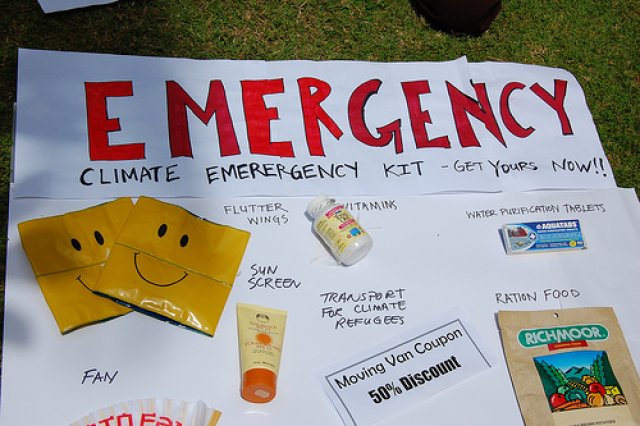
The casual observer might easily conclude that there are just two clear sides in the parliamentary debate over the Labor/Greens carbon price deal.
But there is a lot more to the debate than this.
Clearly the Greens are in favour, and appear to have won over PM Julia Gillard’s government to an interim carbon tax.
On the other hand, opposition leader Tony Abbott has promised a Tea Party-style uprising against it. Abbott will push to rouse a fascistic “people’s” movement to try to bury the deal.
Meanwhile, Labor expects environmentalists will support its proposal. But it can’t take the support of the grassroots climate movement for granted, as it found with the failed Carbon Pollution Reduction Scheme.
Already, Friends of the Earth (FoE) has declared its opposition to the current carbon price deal on the grounds it is “hard-wired” to turn into a carbon trading scheme.
FoE spokesperson Holly Creenaune said on February 24: “We welcome the exclusion of international offsets from the interim carbon price.
“However, by allowing domestic offsets in the initial phase, expanding to a carbon market riddled with international offsets, polluters will avoid reducing emissions at the expense of communities displaced and affected by damaging offset projects.”
FoE has held the scheme up to a set of criteria based on the principles it thinks are important. The rest of the climate movement ought to do likewise, and we should applaud FoE for putting its views in such a forthright and timely manner.
The Climate Emergency Network (CEN) in Melbourne has also come up with a set of criteria for a safe climate policy. These criteria imply the tests to which we need to subject the carbon price.
CEN suggests that climate policy must ensure “a rapid phase out of all current fossil fuel use (coal, gas and oil) — without allowing new or expanded fossil fuel developments” and “not subsidise fossil fuel exploration, mining, or use, nor provide compensation to industries that profit from unconstrained greenhouse gas pollution”.
It must “ensure the rapid deployment and further development of clean renewable energy technology until it supplies 100% of the stationary energy supply, and provides for an electrified public transport system powered by clean renewable energy”.
Climate policy also has to be just: it must “ensure that vulnerable individuals and communities suffer no disadvantage from the safe climate transition”, CEN said.
It must “not allow trade-offs or offsets — recognising that we need to simultaneously and urgently reduce emissions and increase draw down of greenhouse gases and assist developing nations”.
Will a national carbon price achieve these goals? Will it prevent us taking detours such as moving from coal-burning to gas-burning? Or will it promote renewable energy and returning to a safe climate?
We have to keep campaigning for all the measures that will take us back to a safe climate. But we also have to ensure that measures like the carbon price do not take us on costly detours, or weigh us down with negative consequences.
If we do not exercise our right to criticism we risk giving Abbott a hand up with his hypocritical criticisms of carbon pricing. That will not mobilise more people for a safe climate, but it will damage and confuse the movement.
The climate deserves better, and the Greens deserve honest, intelligent and critical feedback on the real merits of their proposal as they undertake difficult negotiations with the Labor government.